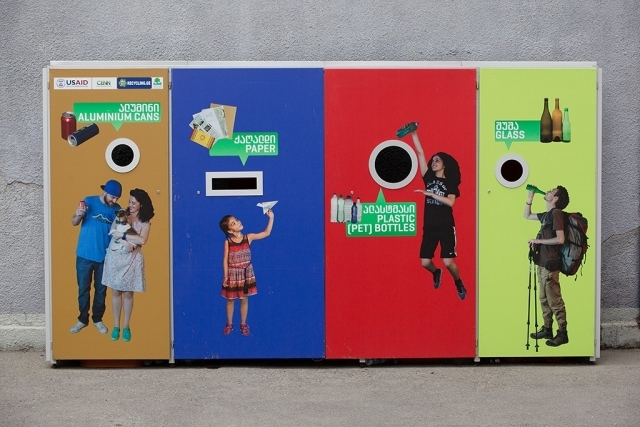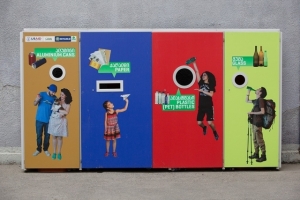Recycling in Georgia
Recycling is a major part of preserving the world as we know it and one person or country doing
it just won’t be enough. Pollution is reaching a critical point where change is needed. In the past
few years, many projects have been initiated to help with this worldwide, and recently Georgia
has been playing its part. But is it enough?
Back in 2015, Batumi became the first area to implement a recycling strategy in order to reduce
pollution and help in preserving the environment in Georgia. More than 100 recycling bins
separating glass, paper and plastic were installed. Even though Georgia did not have a specific
waste recycling system, this was done as a way of encouraging locals to better discard of
garbage and make recycling a habit for the future.
“To solve the garbage problem, it must be started from something and by someone. We are like
innovators in this sense, so let’s see what happens. This won’t completely solve our rubbish
problem but we want to change people’s attitude toward waste management,” said Batumi
Boulevard Administration Deputy Director Giorgi Varshanidze.
Then in 2016, Solid Waste Management Company Director Giorgi Shukhoshvili announced that
discussions where underway to carry out the sorting of separated waste, after which private
sector companies would then process the raw materials. These changes are planned to take full
affect only in 2019.
“We're working on determining what sort of technologies can and need to be introduced into
the recycling process. This is open for investors and, if they choose to, the government will
support them,” he said.
2017 started off with a presentation done by Enviroserve, a Dubai-headquartered company
operating in recycling e-waste. They announced the launch of an electronic waste recycling
program in partnership with the Caucasus Environmental Network (CENN), the Waste
Management Technologies in the Regions program (WMTR) and EcoVision’s Spare Project.
Enviroserve planned to distribute e-waste collection boxes across the country, and after
collection, the scrap would then be shipped to Dubai for recycling. These drop-off locations
aren’t available yet, but you can contact them through the website for a pickup.
“It’s a call to action for Georgian citizens and companies to benefit from the program we’re
launching, to have a healthier, greener Georgia. E-waste affects every one of us,” said Stuart
Fleming, CEO of Enviroserve.
Later in 2017, Tbilisi took a step toward “environmentally friendly” and placed several recycling
points around the city with more waste separation spots planned for the future. The problem
we face, however, is whether or not people actually decide to use these spots. The Tbilisi
Mayor tried to make it more accessible for residents by installing special plastic bottle collector
machines as well. But people are stubborn and do not always want to give in to things they are
not use to. As a result, Tbilisi City hall announced the implementation of a recycling strategy in
cooperation with the European Bank for Reconstruction and Development (EBRD) in order to
move forward in the endeavor of making recycling a top priority.
“I think the strategy that will be created by the EBRD and Tbilisi Municipality will ensure that
very soon Tbilisi will step by step move towards a waste segregation system,” said Tbilisi Mayor
Kakha Kaladze.
Many things have been promised with the goal of progressing recycling in Georgia. Some failed
or never came to fruition, and others have gained trust and support from many. A
memorandum was signed between Tbilisi City Hall’s Tbilservice Group, the Caucasus
Environmental NGO Network (CENN), and Waste Management Association of Georgia in August
this year, and covers the cooperation between the public, private, and civil sectors to promote
the gradual adoption of waste separation by the public. Cooperation began this month and
aims to promote recycling through placing separation facilities in ten areas around Tbilisi and
raising public awareness. This cooperation will educate everyone about the importance of
recycling to the environment and also the importance of bringing the country up to western
standards with other western waste disposal strategies.
Georgia is moving forward in many aspects, but should not forget to protect what is very dear
to it, the beautiful landscapes and ecological environment. 2019 might well be a turning point
for Georgia as the building blocks of proper waste disposal are built, however, the government
can only do so much, and at some point the people need to work together with each other and
the government in order to sustain the beauty and culture of Georgia, and make sure not to
lose for the sake of stubbornness.
By Shawn Wayne












